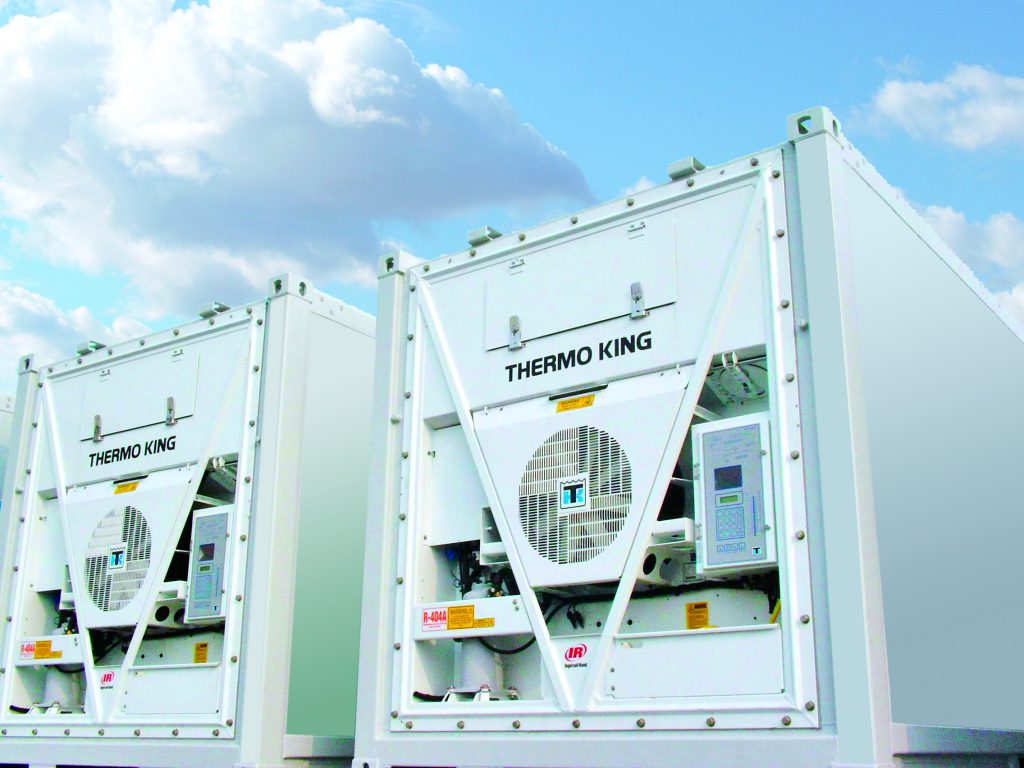Vaccine Transport Protection
24th November 2020

Temperature-controlled transport specialist Thermo King is ready to meet the challenge of storing COVID-19 vaccines, which are likely to require extreme conditions beyond anything previously needed in the industry. Paul Hamblin hears about the plans.
Pharmaceutical companies in final-stage clinical trials for COVID vaccines anticipate they will require strict temperature controls to safeguard their products – indeed, down to temperatures as low as -70 degrees Celsius. That requirement caught a lot of people in the industry off guard, says Jessica Poliner, VP Marine, Rail and Air for Thermo King, by Trane Technologies. “It’s because it’s about maintaining the temperature the vaccines need to be transported and stored at,” she explains from her office in Brussels. “It’s different than more usual vaccines, which are usually kept at 2-8 degrees Celsius. The stability profile of the potential COVID vaccines is much more uncertain, and so that certainly leaves more room for degrading, whether through human error or storage problems. It is maintaining that set point that is essential for the vaccine profile.”
Safe vaccine storage is an area that’s vital to get right, because according to the World Health Organization (WHO), nearly 20 percent of temperature sensitive health care products are damaged during transport, and 25 percent of vaccines reach their destination in a degraded state due to breaks in the cold chain.
Jessica Poliner says that she and her team have spent a lot of time talking to their customers, whether pharma companies, logistics firms, or forwarders, to look at potential solutions for something the whole world is waiting for. It is from these discussions that the temperature requirements became clear. “Everybody’s trying to put together their blueprints of what this will look like. With the Thermo King brand, we have the ability to transport, from road transportation to air cargo. What we’ve added to the mix is a storage solution as well, so that we can offer both transport and storage for vaccines at a very wide range from -70 degrees Celsius to +30 degrees Celsius.”
The requirement for ultra-low temperature isn’t new. “The neat piece with the -70 is that it’s actually a product we’ve used in the marine industry for over 20 years, originally developed to transport a premium grade sashimi tuna along some of the routes from the Mediterranean Sea to Japan and elsewhere. In the past few months we’ve worked to re-purpose that proven product into a solution for vaccine storage at that ultra low temperature of -70 degrees Celsius. So it’s really an exciting time for us to be able to tell a story about a product that we’ve sold a lot of in the past and
have a good experience with, but that’s not in essence being used for that purpose.”
Modifications to it have been relatively minor. “We make a refrigeration system and then put it into the container,” she explains. “We’re recommending a 10 or 20 foot container that has more insulation and some additional safety measures. Obviously if you are going into something at -70 degrees Celsius then safety and PPE are front of mind. But there really isn’t that much difference
to the product itself, which is partly the beauty of it.”
Of course it’s not clear when the solution will be required or in what volume, but Thermo King will be ready to support. “There’s so much uncertainty. Everybody’s been asked to scale, everybody’s been asked to move fast, and there’s still so much uncertainty with when, where and what storage temperature will be needed. Despite a few RFQs out (Request for Quotation), there are still a lot of question marks.”
So her team are having to think on their feet? “The key for us from a manufacturer standpoint is to make sure we have the product available. So, our cold storage product that goes to -70 degrees Celsius can be produced in 10 times the normal volume. That gives you a feel for how quickly we are trying to ramp up our supply.” The alternative used today for ultra-low transport is CO2 in the form of dry ice. This works well when in smaller volumes. “It requires manual intervention and control, so in essence, it’s a band-aid solution. Now volumes of vaccines to be transported and
stored are much higher, and that ‘market’ will look for solutions that are proven and safe, so this is where the Thermo King SuperFreezer makes the difference.”

